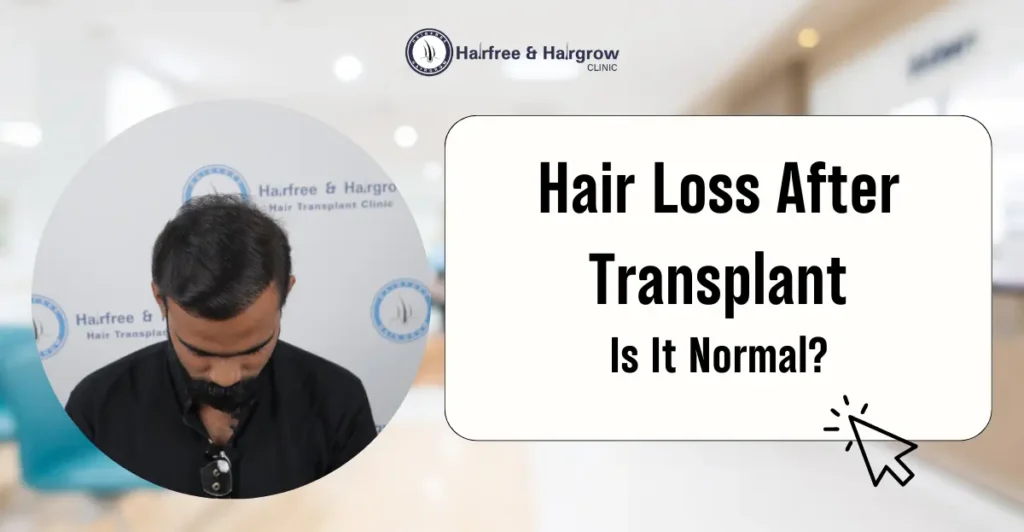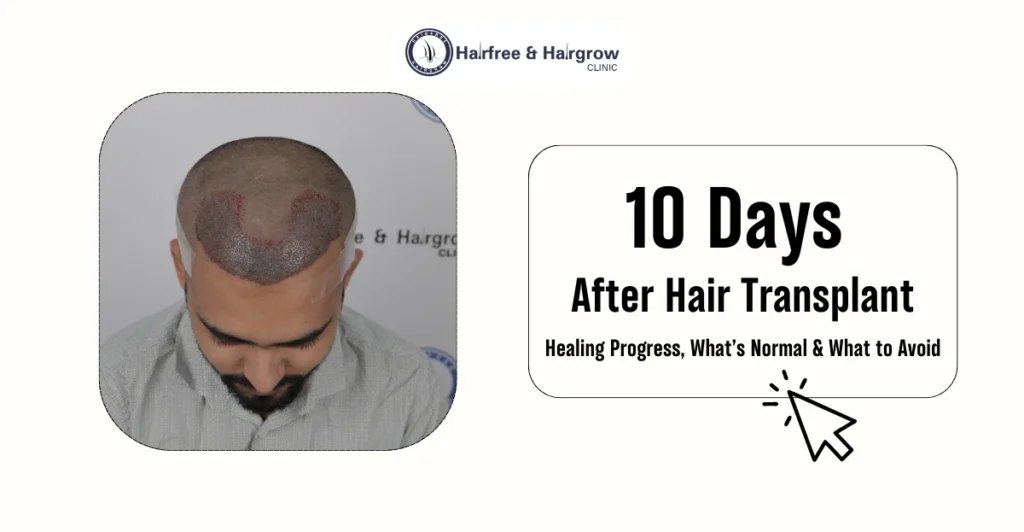Loss of hair is such a severe issue for people as it involves a lot of things including how they perceive themselves. This paper will go into depth about the various practitioners trained to handle these kinds of problems and restore lost hair on their patients’ scalps.
The following medical professionals provide specialised knowledge to treat this issue from distinct perspectives: trichologists, endocrinologists, primary care physicians, and surgical specialists. Exploring their specialised roles can help one make informed choices for receiving comprehensive care.
Find a solution with one of the best hair transplant center in Dhaka, renowned for solving hair loss with years of experience and numerous successful hair transplant cases.
Hair Free Hair Grow Bangladesh, with its expertise, offers advanced solutions for hair loss treatment, led by our skilled hair transplant surgeons in Bangladesh.
Table of Contents

Understanding Hair Loss
Alopecia, or hair loss, is a fairly common condition. Even though it affects older persons more frequently, youngsters can also experience it. Hair loss can occur suddenly or gradually over the years. It could be short-term or long-term, depending on the underlying cause.
What Causes Hair Loss?
Some of the most widespread causes of alopecia include genetics, aging, hormonal changes, medical conditions, and harsh chemical treatments. For male pattern baldness, a hereditary predisposition leads to sensitive hair follicles shrinking over decades in a set pattern atop the head and around the temples. For women, hormonal fluctuations from menopause, pregnancy, or thyroid changes temporarily alter the hair cycle.
Our Clinic Location: Hair Transplant in Dhaka
When to See a Doctor for Hair Loss
Hairs are expected to be lost daily through natural shedding as part of the growth cycle. However, some signs indicate seeing a doctor for hair loss evaluation could be beneficial. Excessive thinning was noted over a few months, large patches of missing hair were developing, dry and brittle strands or clumps of hair clogged the drain or scattered around were all red flags. Early diagnosis allows risk factors to be addressed before more permanent miniaturisation occurs.
Types of Doctors Who Treat Hair Loss
There are a few different options for doctors who can help with hair loss.
Dermatologists: The Skin and Hair Experts
Skin, hair and nail specialists are known as dermatologists. The dermatologists are highly skilled in diagnosing the causes of hair loss such as baldness associated with genetic male or female pattern alopecia, medical conditions like a thyroid problem or any other condition, or external factors like traction alopecia.
Trichologists: Specialists in Hair and Scalp Health
Trichologists are experts in medicine who have been trained solely to treat hair and scalp diseases. To investigate hair development systems intensively, they work with specialized microscopes that allow them to focus on individual hairs and their roots. Such intense scrutiny can reveal minute defects that cannot be seen without any aid.
Endocrinologists: When Hormones Are to Blame
Endocrinologists are the medical experts who focus on treating ailments related to hormones. This is a tale about a doctor whose patients keep showing up with bizarre hormone-related signs and symptoms that don’t conform to any medical norms.
Primary Care Physicians: The First Point of Contact
Primary care physicians, general practitioners or family doctors are usually people’s first point of contact for medical issues – including hair loss concerns. They can perform essential blood work and medical exams to check for underlying causes of shedding like thyroid problems, iron deficiency anaemia or other issues.
Hair Transplant Surgeons: For Surgical Solutions
Hair transplant surgeons are the medical professionals to see when you’re considering a more permanent surgical solution for hair loss, like a hair transplant. As doctors specialising in hair restoration procedures, these surgeons receive extensive training in techniques like follicular unit extraction and implantation.
How to Choose the Right Doctor for Hair Loss
The correct diagnosis is crucial in determining the most effective hair loss treatment, so choosing an experienced doctor is essential.
Factors to Consider When Choosing a Doctor
- Qualifications: Ensure the doctor specialises in treating hair loss conditions. Look for board certification in dermatology.
- Experience: Consider doctors with extensive experience diagnosing and treating various types of hair loss over several years.
- Evaluation Process: Look for a doctor with a thorough approach, including scalp examination, questions about medical history and lifestyle factors, and potentially a scalp biopsy for proper diagnosis.
Importance of a Proper Diagnosis
- An accurate diagnosis is the first crucial step in determining the appropriate treatment plan. Treatment may be ineffective or even detrimental without correctly identifying the underlying issue.
- Doctors need to take a thorough medical history, conduct physical exams, order necessary tests, and rule out alternative conditions to reach the right diagnosis. This evaluation process takes experience and skill.
- Different conditions may have varying treatment protocols. Without properly distinguishing between possible issues, a patient may end up with the wrong treatment for their actual problem.
What to Expect During Your First Appointment
- Paperwork: Expect to fill out medical history forms with details about symptoms.
- Examination: The physical exam may include questions about lifestyle and family history. Visual exam of problem areas.
- Discussion: Explain the issue in your own words to ensure understanding. Ask any questions.
Questions Your Doctor Might Ask
- When did symptoms start, and how did they change?
- What makes symptoms better or worse?
- Any related medical issues or hospital visits?
- Medications, supplements, allergies?
- Your concerns about the problem.
Tests and Examinations
- The doctor may order additional tests like bloodwork or imaging based on the reported history exam.
- These help evaluate underlying causes or rule out alternative issues.
Discussing Treatment Options
- The doctor will explain the diagnosis and suggest a treatment plan.
- Clarify expected outcomes, timeframes, costs or insurance coverage of options available.
- Ask questions to ensure you understand and agree with the recommended approach.
Common Treatments for Hair Loss
Medications
- People try a few main options when they start noticing their hair thinning out. Medication is one – usually stuff like minoxidil or finasteride.
- Fin is a daily pill that blocks DHT production, which is thought to cause hair loss. Both have potential side effects like skin irritation or issues down below for guys.
Non-Surgical Treatments
Another non-drug approach is things like laser therapy or low-level light therapy. The idea is these use light to boost cell metabolism and circulation in the scalp to help hair stay on the head longer.
Surgical Options
Some people also turn to hair transplants if the loss is concentrated in one area. That involves surgically moving hair follicles from the back or sides of the scalp to the thinning regions. It can look super natural if done right. That’s a full head of synthetic hair attached to a mesh base that bonds your scalp.
Conclusion
A variety of medical professionals, including dermatologists, trichologists, endocrinologists, primary care physicians, and surgical specialists, may each play unique consulting roles when it comes to diagnosing and treating cases of hair loss.
An individualised regimen overseen by multiple coordinated specialists can help replace lost follicles and restore confidence from hair thinning related to medical issues, ageing, genetics, or physical trauma. Consulting these different expert doctors leads to the most comprehensive hair health care plans.
Frequently Asked Question
Can Stress Really Cause Hair Loss?
Yes, stress has been linked to temporary hair shedding, as high cortisol levels from stress can interfere with the hair growth cycle.
How Effective Are Over-the-Counter Hair Loss Treatments?
Over-the-counter treatments like minoxidil show results for some but not all.
Are Hair Transplants Permanent?
When done right by a good surgeon, hair transplants can improve coverage permanently.
How Long Does It Take to See Results from Treatment?
Most see improvement in 3-6 months on meds, but it may take a full year to see their full potential.
Can Diet and Lifestyle Changes Improve Hair Loss?
Yes, a healthy diet, managing stress, and treating underlying conditions can help support hair health and slow loss.

Written By
Dr. Nazmin Nipa
Medical Officer & Hair Transplant Surgeon
Dr. Nazmin Sultana Nipa is a distinguished hair transplant doctor in Bangladesh, known for her advanced skills in hair restoration. As a Medical Officer and Hair Transplant Surgeon, Dr. Nipa combines her extensive experience in the field with a focus on transparency and patient-centered care.
Disclaimer
We’ve made all possible efforts to ensure that the information provided here is accurate, up-to-date and complete, however, it should not be treated as a substitute for professional medical advice, diagnosis or treatment. See Detailed Disclaimers Here.



